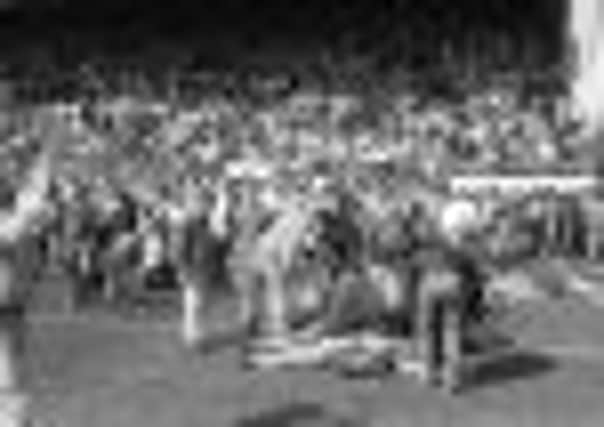Attempt to hide truth should lead to charges says chief


As the scale of the cover-up of the force’s failings on the day of the tragedy was laid bare for the first time, David Crompton said he was clear that if the altering of police statements met a potential criminal standard of proof, prosecution should result.
The Hillsborough Independent Panel found that 164 police statements gathered in the immediate aftermath of events were altered, with 116 subject to “substantive amendment” to “remove or alter comments unfavourable to SYP (South Yorkshire Police)”.
Advertisement
Hide AdAdvertisement
Hide AdMr Crompton, who became South Yorkshire chief in April this year, said: “If someone has falsified something and it breaches the criminal law then, fair enough, that applies to anybody, whether it’s in relation to Hillsborough or anything else.
“They should face prosecution, let’s be clear about it.”
The chief constable said he thought individual liability was more likely than corporate criminal responsibility for his force.
Mr Crompton accepted a cover-up had taken place but said time pressure to get an interim report from Lord Justice Taylor published in the four months before the start of the 1989/90 football season had influenced the process of gathering statements.
He also pointed to both previous public inquiries into Hillsborough being aware of the alteration of statements and had not attached great weight to the changes. He added that officers might have felt they had the “endorsement” of lawyers advising the inquiries.”.
Advertisement
Hide AdAdvertisement
Hide AdBut he said: “What I would absolutely concede is the way the statements were altered placed the police in a better light.
“There was alteration of what officers put down on paper – in that sense, it shouldn’t have been done. It’s a bad idea, it’s bound to end in questions about openness and transparency.”
The panel said South Yorkshire Police “from the outset sought to deflect responsibility for the disaster on to Liverpool fans”.
It found evidence the force’s submissions to the Taylor Inquiry, “emphasised exceptional, aggressive and unanticipated crowd behaviour: Large numbers of ticketless, drunk and obstinate fans involved in concerted action, even ‘conspiracy’, to enter the stadium”.
Advertisement
Hide AdAdvertisement
Hide AdReferring to the wholesale alteration of police statements, the panel highlighted one officer who said he only accepted the changes because he was suffering from post-traumatic stress and that he considered it an injustice for statements to have been “doctored” to suit the management of South Yorkshire Police, the report found.
The panel found: “Examination of officers’ statements shows that officers were discouraged from making criticisms of senior officers’ responses, their management and deficiencies in the SYP operational response: ‘Key’ words and descriptions such as ‘chaotic’ were counselled against and, if included, were deleted.”
Mr Crompton said police responsibility for the disaster itself lay with former chief superintendent David Duckenfield, the matchday commander, and ultimately with the late Peter Wright, who was chief constable at the time. He said the “failure of police leadership and control was about as bad as it could be.”
The chief constable would not be drawn on whether new inquests should take place following the revelation that 41 of the 96 who ultimately perished could possibly have survived if the unfolding events had been better responded to on the day.
Advertisement
Hide AdAdvertisement
Hide AdMr Crompton said the decision was for others to make but he pledged the force would assist in whatever way it could if fresh inquests were ordered.
South Yorkshire Police Federation, which represents rank and file officers and was also implicated in efforts to focus attention on Liverpool fans rather than police, declined to comment last night.